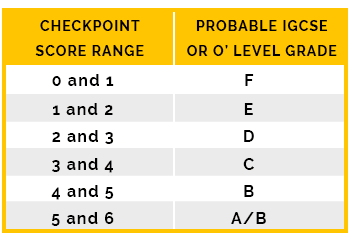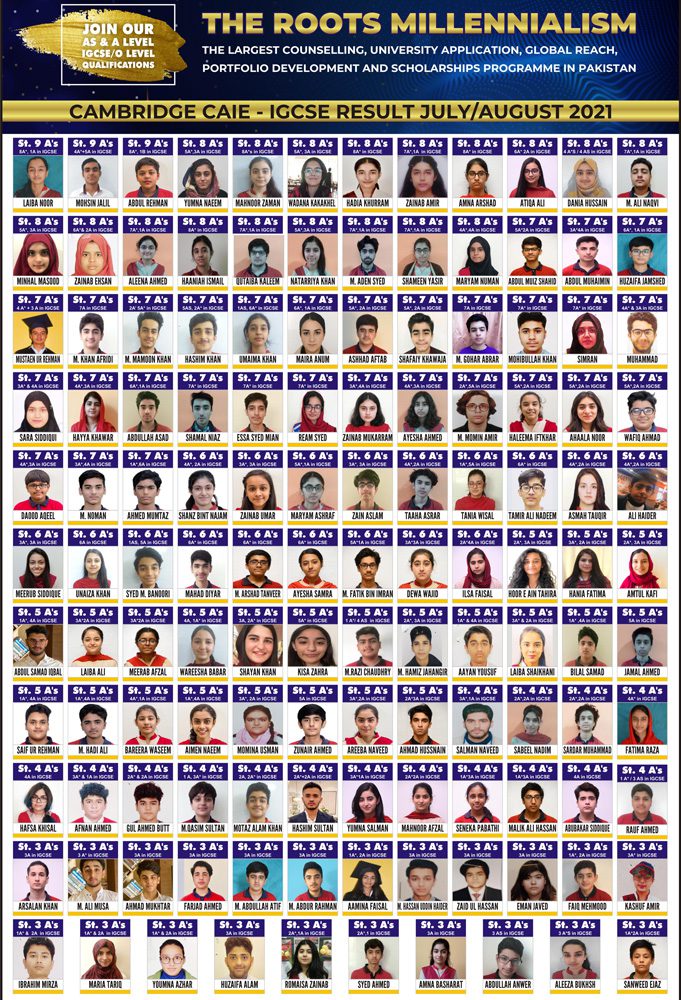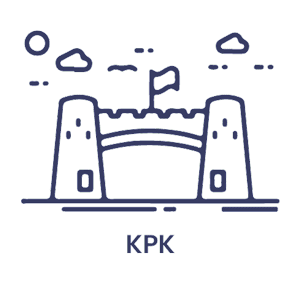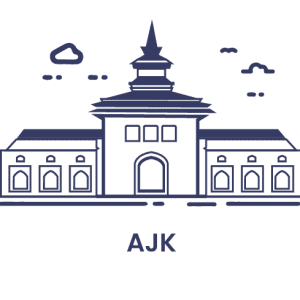Put simply, inspiring teachers inspire learning. Pupils are hand-picked for their ability to think; dons are selected for their enthusiasm, dedication and expertise.
The Millennium Upper Middle Years (TMUMY)
How do we instil a love of learning?
At the Millennium Education, learners are encouraged to study a wide range of subjects at the IGCSE level, at the same time. TME is one of the best school systems offering IGCSEs in Islamabad. In order to follow a broad and balanced curriculum, many students take courses from each of the IGCSE groups particularly if they’re aiming to go on to further education. The IGCSE qualification provides a foundation for higher level courses, such as AS and A Level, the Advanced International Certificate of Education, the North American Advanced Placement programme and the International Baccalaureate.
The Cambridge International General Certificate of Secondary Education (IGCSE) is one of the most recognized qualifications around the world that caters to different levels of ability with a choice between core and extended papers in many subjects.
Cambridge International Education (CIE) is progressive and flexible, helping schools develop successful students. Curricula and qualifications are designed to support high-quality educational performance, developing successful students and supporting the economic performance of countries where CIE works at national level.
International General Certificate for Secondary Education (IGCSE) Cambridge IGCSE is the world’s most popular international qualification for 14 to 16-year olds, attracting over 900 000 subject entries every year from 140 countries. The Results of the tests for the whole subject and for each topic/skill are reported on standardized scale of Cambridge Checkpoint Scores that range from 0.0 (a low level of achievement) to 6.0 (a high level of achievement).
The child’s needs as a learner are at the heart of our approach to education. Our Millennial Pathway gives your child a love of learning that will stay with them throughout school, university and beyond.
“Our mission is to provide educational benefit through provision of international programmes and qualifications for school education and to be the world leader in this field. Together with schools, we develop Cambridge learners who are confident, responsible, reflective, innovative and engaged – equipped for success in the modern world “ Cambridge programmes and qualifications set the global standard for international education. They are created by subject experts, rooted in academic rigour and reflect the latest educational research. They provide a strong platform for learners to progress from one stage to the next, and are well supported by teaching and learning resources. These are recognized by the world’s best universities and employers, giving students a wide range of options in their education and career. As a not-for-profit organisation, we devote our resources to delivering high-quality educational programmes that can unlock learners’ potential. Cambridge International Examinations prepares school students for life, helping them develop an informed curiosity and a lasting passion for learning. CIE is a part of Cambridge Assessment, a department of the University of Cambridge. Every year, nearly a million Cambridge learners from 10,000 schools in 160 countries prepare for their future with an international education from Cambridge. The learner attributes are aspirational and represent attitudes, backed by skilled action, which become effective habits in learning. As these were written with the global learner in mind, they are consistent with other classifications of the attributes of 21st century learners written in different countries by both education authorities and employers, describing the competencies learners need to demonstrate to be effective in the modern world. A generation ago, teachers could expect that what they taught would last their students a lifetime. Today, because of rapid economic and social change, schools have to prepare students for jobs that have not yet been created, technologies that have not yet been invented and problems that we don’t yet know will arise.” Cambridge programmes and qualifications have a proven reputation for being an excellent preparation for university, employment and life and Cambridge International Examinations prepares school students for life, helping them develop an informed curiosity and a lasting passion for learning. The mission is to deliver world-class international education through the provision of high-quality curricula, assessment and services. Cambridge programmes and qualifications are designed to support learners in becoming:
Confident in working with information and ideas of their own and those of others Research has shown that Checkpoint scores are good predictors of performance in Cambridge IGCSE and O Levels examinations. Students with the same Checkpoint score will achieve a range of Cambridge IGCSE grades, because some will work harder and learn more than others. Naturally, students can do better than their predicted grade if they work harder. They will achieve less if they do not put in the effort. Cambridge IGCSE is the world’s most popular international qualification for 14 to 16 year olds. It is recognized by leading universities and employers worldwide, and is an international passport to progression and success. Developed over 25 years ago, it is tried, tested and trusted by schools worldwide. For schools, Cambridge IGCSE offers a flexible and stimulating curriculum, supported with excellent resources and training and for learners, it helps improve performance by developing skills in creative thinking, enquiry and problem solving. It is the perfect springboard to advanced study such as AS and A Levels, the advanced international certificate of education, the North American Advanced Placement programme and the International Baccalaureate Diploma Program. It provides a foundation for higher level courses, including A Levels and AICE Diploma and is equivalent in standard to GCSE London and Cambridge GCE O Level examinations. The IGCSE syllabuses are international in outlook, but retain a local relevance. The have been created specifically for an international student body with content to suit a wide variety of schools and avoid cultural bias. It develops learners knowledge, understanding and skills in: > Cambridge IGCSE Schools can offer any combination of subjects from any discipline and each subject is certificated separately. Cambridge IGCSEs offer a very wide range of subjects to choose from and a variety of alternative routs for learner. Cambridge IGCSEs are highly suitable for a personalized approach, and they ensure that school are in control. Education is continually changing. CIE keeps ahead by updating the entire Cambridge IGCSE suit regularly. Schools tell us they want a balance: between thoroughly revising syllabuses to they adapt to changes in the world, and adjusting them year-on-year so they remain relevant to students and stable for teachers. > English Language > Physics > Accounting At Roots, students are encouraged to study a wide range of subjects at IGCSE level, at the same time. In order to follow a broad and balanced curriculum, many students take courses from each of the IGCSE groups (see subjects offered list), particularly if they’re aiming to go on to further professional education. The decision making about the subjects is critical, try to choose the subjects if: > You have been good at – and enjoyed – a subject in the past. Cambridge IGCSE is designed to be taught as a three year course at our school. The criterion for admission to IGCSE level is such that any student coming from any school, who has passed 8th grade, will be admitted to IGCSE-I i.e. grade 9th. The child will go through an admission test of subjects English and mathematics and will undergo a brief interview if he/she passes the test. Admission Form Pack (AFP – 001), prospectus together with subject combination form are available at all admission offices and selection of the students is on merit. The decision of the management and school administration is final and cannot be challenged. Department of International Qualifications at Head Office ensures quality and standard of internal assessments in all campuses of RMS nationwide by providing centralized examination system. Internal assessments take place throughout the course of three years and gives options to the learners including written, oral, coursework and practical assessments. The student’s academic progress is assessed through, sessional, terminals, mock exams, oral and listening tests, practical exercises, home assignments, projects and written examinations. The progress is then recorded by the administration and result folder and report cards are sent home after sessional and term exams. Parent Teacher Meeting is held twice in each term and four times in an academic year. At RMS, there are two terms in an academic year. First term is from Aug-Dec and 2nd term is Jan to June. There is one sessional (monthly assessment) in first term and one sessional in the second term. First terminal exams and Mock exam for the exam class held in December and final term promotion exams in May and result comes in June. After analyzing the results of 1st mock exam and two-year performance Principal and subject teachers decide to get the child registered for core or extended curriculum. At RMS we believe that home learning needs to be part of a wider partnership between parents and school. Homework contributes toward building responsibility, self-discipline and lifelong learning habits and provides students with the opportunity to apply information they have learned, complete unfinished class assignments, and develop independence. Home learning refers to work or activities which students are asked to do outside lesson time either on their own or with parents / guardians. A well-organised, regular programme of home-learning helps to develop an understanding of lifelong learning as well as reinforcing learning in the classroom. The following guidelines set out the school’s broad expectations about the amount of time students might reasonably be expected to spend on home learning and provide a useful framework for parents. However, the precise amount of time spent on home learning is much less important than the quality of the tasks set and the way in which they are planned to support learning. All students are given monthly schedules in which different days will be assigned to different subjects, to spread HW over the week. This helps us to avoid over burdening our students as well as keeps our students actively involved in their studies. > Write down assignments in the “RMS RA Dairies” Cambridge international qualifications are recognised across the globe. They provide learners with a passport to success – in education, university and work. We are committed to ensuring a smooth transition for students from Cambridge Secondary 2 to the next stage, Cambridge Advanced, and then on to higher education. UK NARIC, the national agency in the UK for the recognition and comparison of international qualifications and skills, has carried out an independent benchmarking study of Cambridge IGCSE and found it to be comparable to the standard of UK GCSE. This means students can be confident that their Cambridge IGCSE qualifications are accepted as equivalent to UK GCSEs by leading universities worldwide. When applying to UK universities, it is essential that students can communicate effectively in English and are able to do so in an academic environment. Cambridge IGCSE English Language qualifications are recognised by a significant number of UK universities as evidence of English language competency for university study. Many universities worldwide require a combination of Cambridge IGCSEs to meet their entry requirements. For example leading US and Canadian universities require Cambridge International AS & A Levels but some US and Canadian colleges and universities will accept learners with five Cambridge IGCSEs at grade C or above. Perfect IGCSE Student Profile includes grades, co-curricular activities, SAT scores, community service and internships. It leads towards best endeavors at A Level and open the option of choosing among the best universities for under graduation admission for international admissions and scholarships. Universities in countries around the world including Pakistan, recognize and welcome Cambridge qualifications. The government of Pakistan recognizes Cambridge qualifications and provides equivalence to local system of education in order to ensure smooth progression for students who choose to pursue their education in Pakistan. The government body responsible for issuing equivalence conversion is the Inter Board Committee of Chairman (IBCC) www.ibcc.edu.pk. Cambridge O Level and Cambridge IGCSE are equated to the local Secondary School Certificate (SSC) and Cambridge International A Levels to the Higher Secondary School certificate ( HSSC) . The equivalence: > For Pakistani Nationals [8 GCE O Level (Including five compulsory subjects i.e. Eng, Maths,Urdu, Pak.Studies, Islamiyat) & 3 GCE A Level]
> Responsible for themselves, responsive to and respectful of others
> Reflective as learners, developing their ability to learn
> Innovative and equipped for new and future challenges
> Engaged intellectually and socially, ready to make a difference. 
> Subject content
> Applying knowledge and understanding to new as well as familiar situations
> Intellectual enquiry
> Flexibility and responsiveness to change
> Working and communicating in English
> Influencing outcomes
> Cultural awarenessCambridge Languages
> Urdu Language
> German LanguageCambridge Sciences
> Biology
> Chemistry
> Mathematics
> Mathematics Additional
> Information, Communication & Technology
> Computer ScienceCambridge Hunanities & Social Sciences
> Business Studies
> Economics
> Enterprise
> English Literature
> Islamiyat
> Pakistan Studies
> Art & Design
> Geography
> Global Perspectives
> History
> You need a subject to enter a particular career or course.
> You have not studied – subject before but have looked into it and think it will suit your strengthGuidelines
> Be sure all assignments are clear; don’t be afraid to ask questions if necessary
> Set aside a regular time for studying
> Find a quiet, well-lit study area
> Work on homework independently whenever possible, so that it reflects student ability.
> Produce quality work.
> Make sure assignments are done according to the given instructions and completed on time.
> The duration of homework for IGCSE – I & II, is 90 minutes per day and for IGCSE-III itis 2 hours per day.
> Student presentations/ month as per the required subjects are also scheduled beforehand to give all of the students ample time for preparation and study.
> For Foreigners (5 GCE O Level & 3 GCE A Level)
At the Millennium Education, learners are encouraged to study a wide range of subjects at the IGCSE level, at the same time. TME is one of the best school systems offering IGCSEs in Islamabad. In order to follow a broad and balanced curriculum, many students take courses from each of the IGCSE groups particularly if they’re aiming to go on to further education. The IGCSE qualification provides a foundation for higher level courses, such as AS and A Level, the Advanced International Certificate of Education, the North American Advanced Placement programme and the International Baccalaureate.
The Cambridge International General Certificate of Secondary Education (IGCSE) is one of the most recognized qualifications around the world that caters to different levels of ability with a choice between core and extended papers in many subjects.
Cambridge International Education (CIE) is progressive and flexible, helping schools develop successful students. Curricula and qualifications are designed to support high-quality educational performance, developing successful students and supporting the economic performance of countries where CIE works at national level.
International General Certificate for Secondary Education (IGCSE) Cambridge IGCSE is the world’s most popular international qualification for 14 to 16-year olds, attracting over 900 000 subject entries every year from 140 countries. The Results of the tests for the whole subject and for each topic/skill are reported on standardized scale of Cambridge Checkpoint Scores that range from 0.0 (a low level of achievement) to 6.0 (a high level of achievement).
The child’s needs as a learner are at the heart of our approach to education. Our Millennial Pathway gives your child a love of learning that will stay with them throughout school, university and beyond.
“Our mission is to provide educational benefit through provision of international programmes and qualifications for school education and to be the world leader in this field. Together with schools, we develop Cambridge learners who are confident, responsible, reflective, innovative and engaged – equipped for success in the modern world “ Cambridge programmes and qualifications set the global standard for international education. They are created by subject experts, rooted in academic rigour and reflect the latest educational research. They provide a strong platform for learners to progress from one stage to the next, and are well supported by teaching and learning resources. These are recognized by the world’s best universities and employers, giving students a wide range of options in their education and career. As a not-for-profit organisation, we devote our resources to delivering high-quality educational programmes that can unlock learners’ potential. Cambridge International Examinations prepares school students for life, helping them develop an informed curiosity and a lasting passion for learning. CIE is a part of Cambridge Assessment, a department of the University of Cambridge. Every year, nearly a million Cambridge learners from 10,000 schools in 160 countries prepare for their future with an international education from Cambridge. The learner attributes are aspirational and represent attitudes, backed by skilled action, which become effective habits in learning. As these were written with the global learner in mind, they are consistent with other classifications of the attributes of 21st century learners written in different countries by both education authorities and employers, describing the competencies learners need to demonstrate to be effective in the modern world. A generation ago, teachers could expect that what they taught would last their students a lifetime. Today, because of rapid economic and social change, schools have to prepare students for jobs that have not yet been created, technologies that have not yet been invented and problems that we don’t yet know will arise.” Cambridge programmes and qualifications have a proven reputation for being an excellent preparation for university, employment and life and Cambridge International Examinations prepares school students for life, helping them develop an informed curiosity and a lasting passion for learning. The mission is to deliver world-class international education through the provision of high-quality curricula, assessment and services. Cambridge programmes and qualifications are designed to support learners in becoming:
Confident in working with information and ideas of their own and those of others Research has shown that Checkpoint scores are good predictors of performance in Cambridge IGCSE and O Levels examinations. Students with the same Checkpoint score will achieve a range of Cambridge IGCSE grades, because some will work harder and learn more than others. Naturally, students can do better than their predicted grade if they work harder. They will achieve less if they do not put in the effort. Cambridge IGCSE is the world’s most popular international qualification for 14 to 16 year olds. It is recognized by leading universities and employers worldwide, and is an international passport to progression and success. Developed over 25 years ago, it is tried, tested and trusted by schools worldwide. For schools, Cambridge IGCSE offers a flexible and stimulating curriculum, supported with excellent resources and training and for learners, it helps improve performance by developing skills in creative thinking, enquiry and problem solving. It is the perfect springboard to advanced study such as AS and A Levels, the advanced international certificate of education, the North American Advanced Placement programme and the International Baccalaureate Diploma Program. It provides a foundation for higher level courses, including A Levels and AICE Diploma and is equivalent in standard to GCSE London and Cambridge GCE O Level examinations. The IGCSE syllabuses are international in outlook, but retain a local relevance. The have been created specifically for an international student body with content to suit a wide variety of schools and avoid cultural bias. It develops learners knowledge, understanding and skills in: > Cambridge IGCSE Schools can offer any combination of subjects from any discipline and each subject is certificated separately. Cambridge IGCSEs offer a very wide range of subjects to choose from and a variety of alternative routs for learner. Cambridge IGCSEs are highly suitable for a personalized approach, and they ensure that school are in control. Education is continually changing. CIE keeps ahead by updating the entire Cambridge IGCSE suit regularly. Schools tell us they want a balance: between thoroughly revising syllabuses to they adapt to changes in the world, and adjusting them year-on-year so they remain relevant to students and stable for teachers. > English Language > Physics > Accounting At Roots, students are encouraged to study a wide range of subjects at IGCSE level, at the same time. In order to follow a broad and balanced curriculum, many students take courses from each of the IGCSE groups (see subjects offered list), particularly if they’re aiming to go on to further professional education. The decision making about the subjects is critical, try to choose the subjects if: > You have been good at – and enjoyed – a subject in the past. Cambridge IGCSE is designed to be taught as a three year course at our school. The criterion for admission to IGCSE level is such that any student coming from any school, who has passed 8th grade, will be admitted to IGCSE-I i.e. grade 9th. The child will go through an admission test of subjects English and mathematics and will undergo a brief interview if he/she passes the test. Admission Form Pack (AFP – 001), prospectus together with subject combination form are available at all admission offices and selection of the students is on merit. The decision of the management and school administration is final and cannot be challenged. Department of International Qualifications at Head Office ensures quality and standard of internal assessments in all campuses of RMS nationwide by providing centralized examination system. Internal assessments take place throughout the course of three years and gives options to the learners including written, oral, coursework and practical assessments. The student’s academic progress is assessed through, sessional, terminals, mock exams, oral and listening tests, practical exercises, home assignments, projects and written examinations. The progress is then recorded by the administration and result folder and report cards are sent home after sessional and term exams. Parent Teacher Meeting is held twice in each term and four times in an academic year. At RMS, there are two terms in an academic year. First term is from Aug-Dec and 2nd term is Jan to June. There is one sessional (monthly assessment) in first term and one sessional in the second term. First terminal exams and Mock exam for the exam class held in December and final term promotion exams in May and result comes in June. After analyzing the results of 1st mock exam and two-year performance Principal and subject teachers decide to get the child registered for core or extended curriculum. At RMS we believe that home learning needs to be part of a wider partnership between parents and school. Homework contributes toward building responsibility, self-discipline and lifelong learning habits and provides students with the opportunity to apply information they have learned, complete unfinished class assignments, and develop independence. Home learning refers to work or activities which students are asked to do outside lesson time either on their own or with parents / guardians. A well-organised, regular programme of home-learning helps to develop an understanding of lifelong learning as well as reinforcing learning in the classroom. The following guidelines set out the school’s broad expectations about the amount of time students might reasonably be expected to spend on home learning and provide a useful framework for parents. However, the precise amount of time spent on home learning is much less important than the quality of the tasks set and the way in which they are planned to support learning. All students are given monthly schedules in which different days will be assigned to different subjects, to spread HW over the week. This helps us to avoid over burdening our students as well as keeps our students actively involved in their studies. > Write down assignments in the “RMS RA Dairies” Cambridge international qualifications are recognised across the globe. They provide learners with a passport to success – in education, university and work. We are committed to ensuring a smooth transition for students from Cambridge Secondary 2 to the next stage, Cambridge Advanced, and then on to higher education. UK NARIC, the national agency in the UK for the recognition and comparison of international qualifications and skills, has carried out an independent benchmarking study of Cambridge IGCSE and found it to be comparable to the standard of UK GCSE. This means students can be confident that their Cambridge IGCSE qualifications are accepted as equivalent to UK GCSEs by leading universities worldwide. When applying to UK universities, it is essential that students can communicate effectively in English and are able to do so in an academic environment. Cambridge IGCSE English Language qualifications are recognised by a significant number of UK universities as evidence of English language competency for university study. Many universities worldwide require a combination of Cambridge IGCSEs to meet their entry requirements. For example leading US and Canadian universities require Cambridge International AS & A Levels but some US and Canadian colleges and universities will accept learners with five Cambridge IGCSEs at grade C or above. Perfect IGCSE Student Profile includes grades, co-curricular activities, SAT scores, community service and internships. It leads towards best endeavors at A Level and open the option of choosing among the best universities for under graduation admission for international admissions and scholarships. Universities in countries around the world including Pakistan, recognize and welcome Cambridge qualifications. The government of Pakistan recognizes Cambridge qualifications and provides equivalence to local system of education in order to ensure smooth progression for students who choose to pursue their education in Pakistan. The government body responsible for issuing equivalence conversion is the Inter Board Committee of Chairman (IBCC) www.ibcc.edu.pk. Cambridge O Level and Cambridge IGCSE are equated to the local Secondary School Certificate (SSC) and Cambridge International A Levels to the Higher Secondary School certificate ( HSSC) . The equivalence: > For Pakistani Nationals [8 GCE O Level (Including five compulsory subjects i.e. Eng, Maths,Urdu, Pak.Studies, Islamiyat) & 3 GCE A Level]
> Responsible for themselves, responsive to and respectful of others
> Reflective as learners, developing their ability to learn
> Innovative and equipped for new and future challenges
> Engaged intellectually and socially, ready to make a difference. 
> Subject content
> Applying knowledge and understanding to new as well as familiar situations
> Intellectual enquiry
> Flexibility and responsiveness to change
> Working and communicating in English
> Influencing outcomes
> Cultural awarenessCambridge Languages
> Urdu Language
> German LanguageCambridge Sciences
> Biology
> Chemistry
> Mathematics
> Mathematics Additional
> Information, Communication & Technology
> Computer ScienceCambridge Hunanities & Social Sciences
> Business Studies
> Economics
> Enterprise
> English Literature
> Islamiyat
> Pakistan Studies
> Art & Design
> Geography
> Global Perspectives
> History
> You need a subject to enter a particular career or course.
> You have not studied – subject before but have looked into it and think it will suit your strengthGuidelines
> Be sure all assignments are clear; don’t be afraid to ask questions if necessary
> Set aside a regular time for studying
> Find a quiet, well-lit study area
> Work on homework independently whenever possible, so that it reflects student ability.
> Produce quality work.
> Make sure assignments are done according to the given instructions and completed on time.
> The duration of homework for IGCSE – I & II, is 90 minutes per day and for IGCSE-III itis 2 hours per day.
> Student presentations/ month as per the required subjects are also scheduled beforehand to give all of the students ample time for preparation and study.
> For Foreigners (5 GCE O Level & 3 GCE A Level)







